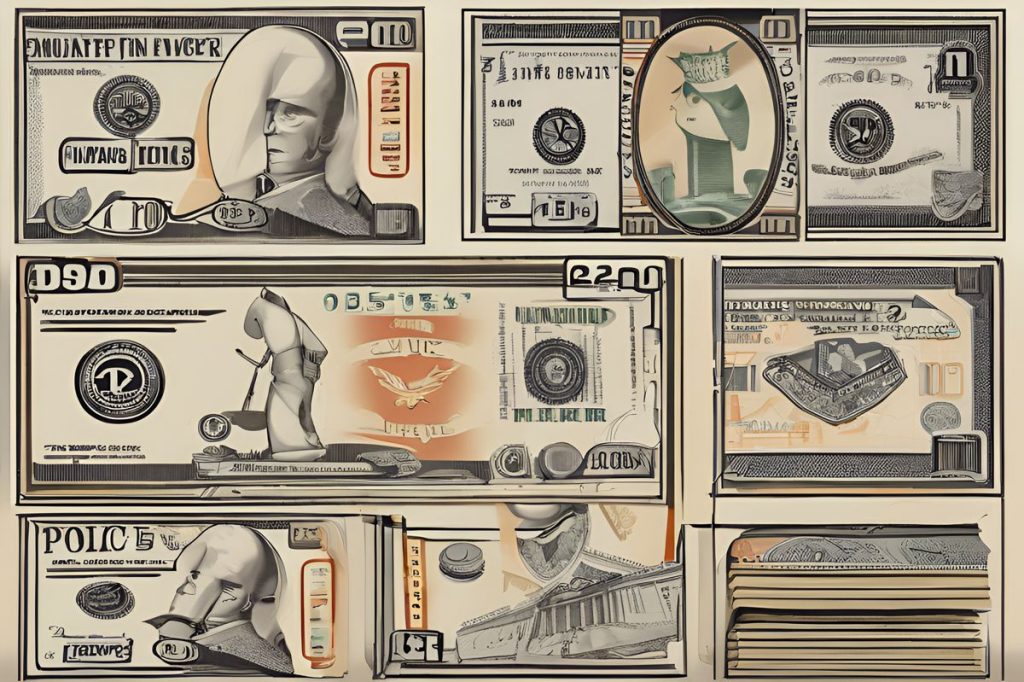In the northern region, a crackdown on counterfeit currency has led to arrests and seizures of fake dollars, highlighting the risks and law enforcement’s vigilance against illegal activities. Recent cases involving individuals attempting to introduce counterfeit money into circulation, particularly in casinos, emphasize the detrimental impact on the economy and the importance of maintaining trust in the financial system.
What are the consequences of counterfeit currency circulation?
Counterfeit currency undermines trust in the financial system, contributes to inflation, and damages the economy. Recent crackdowns in the northern region highlight the issue, with police seizing fake dollars and arresting individuals, signifying the risks and the law enforcement’s vigilance against such illegal activities.
A Spree of Counterfeit Cases
Police operations in the northern territories have hit a recent high with the discovery of a substantial amount of counterfeit American money. These fake dollars have been infiltrating the local economy, particularly targeting unwary businesses and establishments. On a quiet Sunday that seemed like any other, law enforcement made a significant breakthrough. A 36-year-old man from Kyrenia was apprehended; following a meticulous search of his residence in Ayios Georgios, officers found $7,297 in fake bills, a stark reminder of the insidious nature of this illegal practice.
The arrest of this individual is not an isolated incident. It links to the broader narrative of two younger men, 24 and 25 years old, caught with $1,253 in counterfeit dollars at a casino. Their capture possibly shed light on a larger network of counterfeit currency distribution that the authorities are now unraveling.
Casino Circulation Attempts
Casinos, with their high cash flow, have become prime targets for the circulation of counterfeit currency. In a separate but seemingly related incident, another individual faced the consequences of attempting to introduce fraudulent funds into the system. This man presented forty counterfeit $50 bills, totaling $2,000, at a casino in Kyrenia. A subsequent search of his property revealed an additional 20 counterfeit $100 bills. Each of these fake notes represents not just a financial loss to businesses but also a threat to the integrity of the local economy.
Furthermore, another bold attempt involved the use of a single counterfeit $50 bill at yet another casino. Although this attempt might appear minor compared to the thousands uncovered in other cases, it signifies the widespread nature of the problem. During the house search of the perpetrator, no further counterfeit money was found, but the attempt alone was enough for the authorities to take action.
The Perils of Counterfeit Money
The influx of counterfeit currency is more than just a local issue; it’s a global concern with far-reaching implications. For the untrained eye, distinguishing between a genuine and fake bill can be challenging. Counterfeiting not only undermines trust in the currency but also fuels an underground economy that operates outside of legal boundaries. Each fake note that enters circulation has the potential to undermine the value of the real currency, contributing to inflation and damaging trust in financial institutions.
The recent crackdowns are a part of a broader initiative to maintain the sanctity of the monetary system. The arrests and seizures send a clear message to those considering counterfeiting as a viable enterprise: the risks are substantial, and law enforcement is vigilant.
Language and the Law
In the realm of law enforcement, communication is crucial. The language used in police reports, press releases, and even in the courtroom can influence the understanding and perception of criminal activity. The complexity of legal terminology often adds a layer of perplexity, especially for the layperson. However, this complexity is essential to capture the nuances and intricacies of the law. By contrasting detailed, jargon-heavy sentences with more straightforward statements, the language of the law exhibits its own burstiness, adaptable to the audience it serves.
As police continue their meticulous investigations, they also work to keep the public informed. The dynamic nature of their reports—sometimes technical, other times pointedly clear—reflects the seriousness of their mission to protect and serve. Whether issuing warnings to the community or detailing the outcomes of their operations, their messages are crafted to be both accessible and informative.
What are the consequences of counterfeit currency circulation?
Counterfeit currency undermines trust in the financial system, contributes to inflation, and damages the economy. Recent crackdowns in the northern region highlight the issue, with police seizing fake dollars and arresting individuals, signifying the risks and the law enforcement’s vigilance against such illegal activities.
Why have casinos become prime targets for the circulation of counterfeit currency?
Casinos, with their high cash flow, have become prime targets for the circulation of counterfeit currency due to the potential to introduce fraudulent funds into the system without detection. Recent cases have shown individuals attempting to use fake bills in casinos, highlighting the risks associated with such illegal activities.
What are the broader implications of counterfeit money entering circulation?
The influx of counterfeit currency is not just a local issue but a global concern with far-reaching implications. Counterfeiting not only undermines trust in the currency but also fuels an underground economy that operates outside legal boundaries. Each fake note that enters circulation has the potential to undermine the value of real currency, contributing to inflation and damaging trust in financial institutions.
How does law enforcement language help in combating counterfeit currency operations?
In the realm of law enforcement, communication is crucial. The language used in police reports and press releases helps to inform the public about the risks associated with counterfeit currency operations. By using clear and detailed language, law enforcement aims to raise awareness about the detrimental impact of counterfeit money on the economy and the importance of maintaining trust in the financial system.

